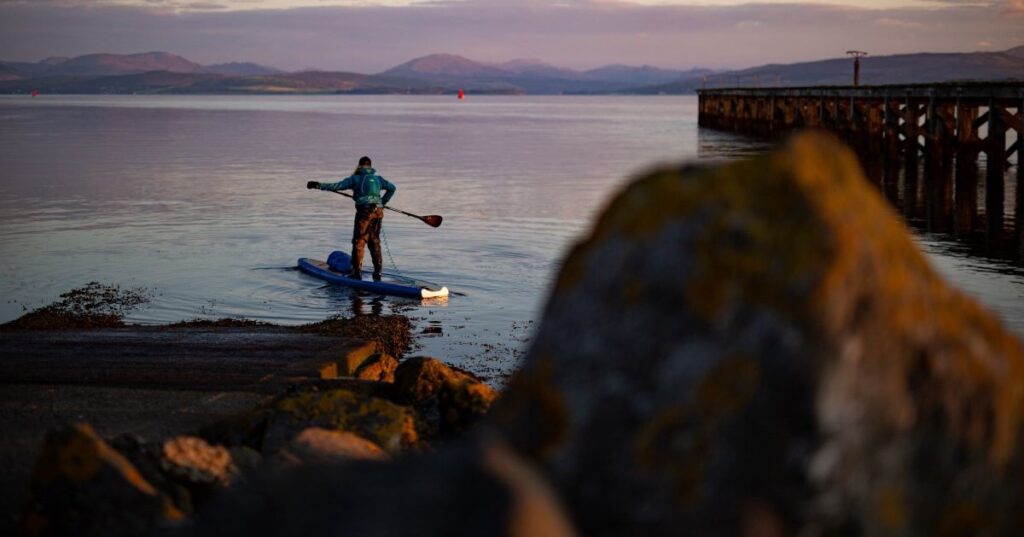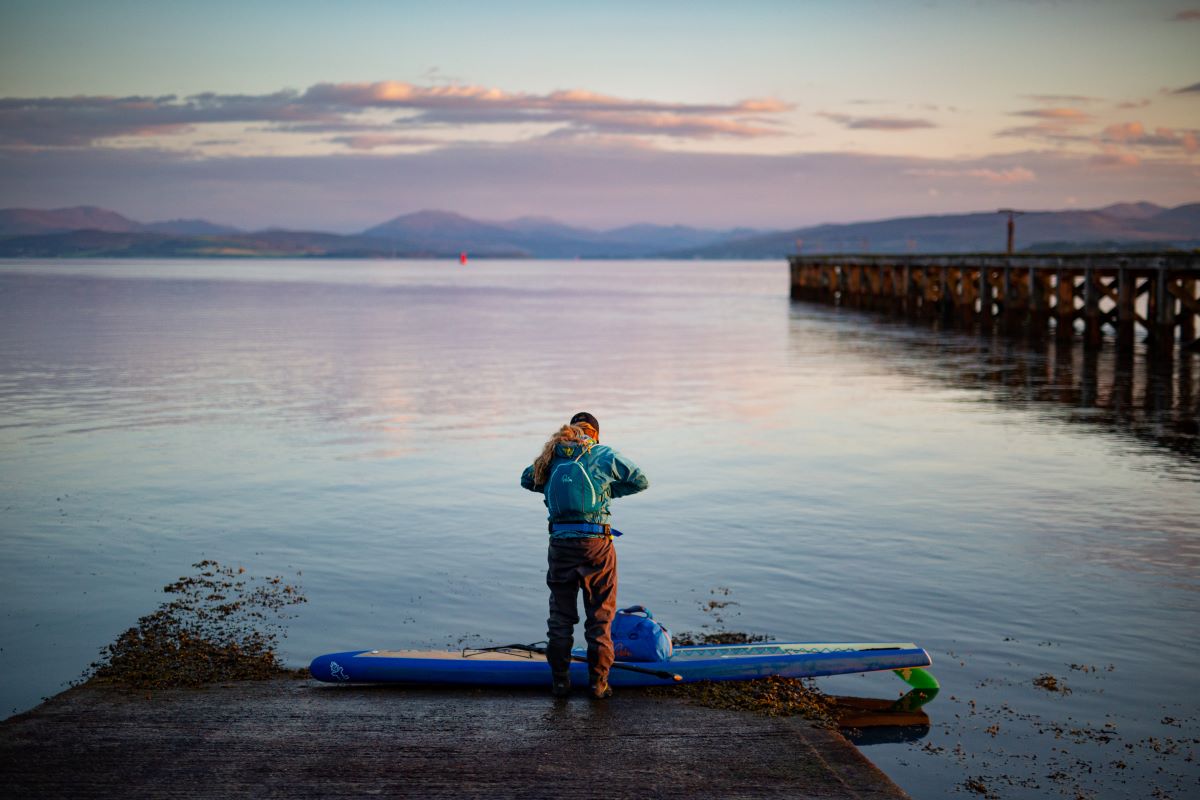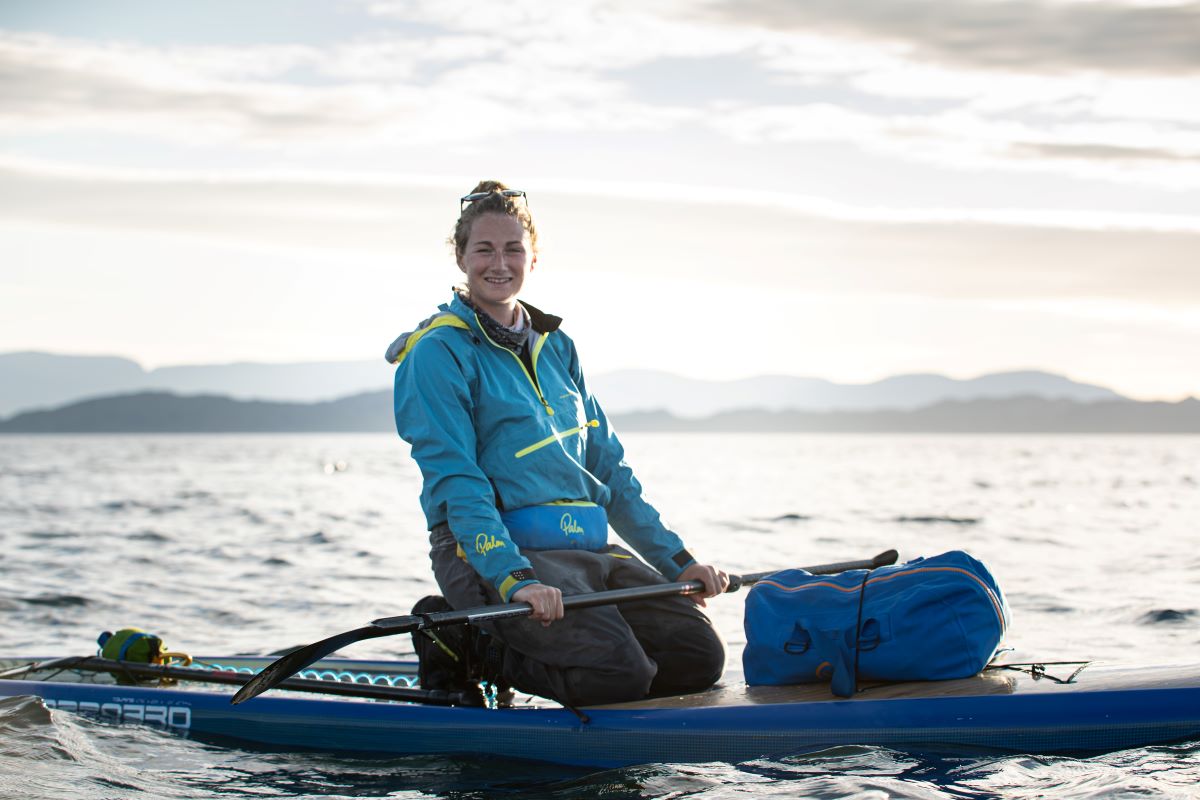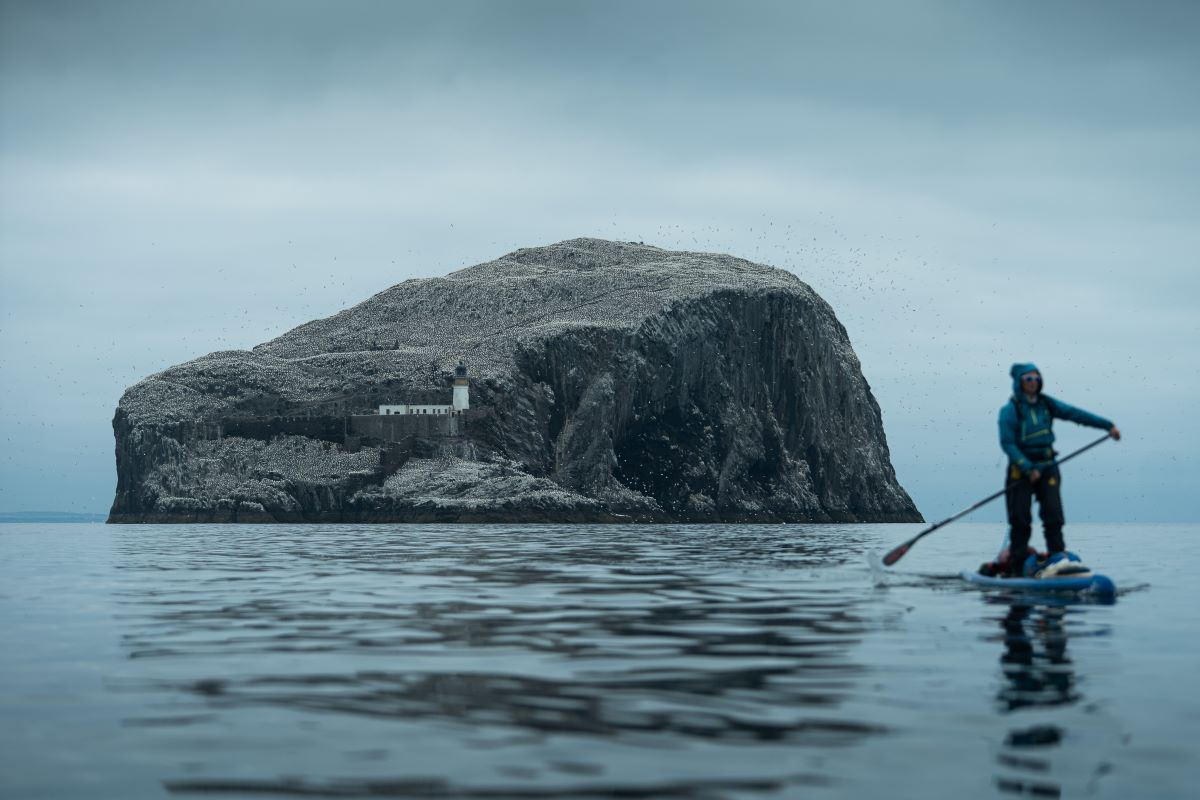
Life With Cal Major: ‘I look forward to the day I look out my window in the Highlands and see dolphins and whales’
Adventurer, vet and ocean advocate Cal Major has travelled 800 miles around Scotland’s wild coast on a paddleboard. Along the way, she made shocking discoveries, met the communities doing their bit to help and explored the wildlife and ecosystems below the water.
I wake up pretty early, normally whenever the sun wakes me up. Winter was a bit of a shock this year – I was waking up so late. I try and get outside as soon as I get up, normally with a big flask of tea. I either walk up the hill behind my house to look out over the summer isles, or down to the shore of the sea loch just across the road from me to check for otters and investigate the seaweed. I love this way of finding out what the weather, tides and nature outside is up to that day, and it’s the best way I’ve found to set the most mindful and connected tone for my day ahead.
My earliest memories of adventures was going up into the hills with my parents, and camping holidays to the coast in North Wales. I remember sharing a tent with my brothers, swimming in the sea and belly boarding. We’d pack the car with all our camping stuff and head off during the school holidays. When I was old enough to drive, one of the first trips I went on was back there with my best friend for a ridiculous and hilarious couple of days trying to teach myself to surf.

‘Our seas are one of the planet’s most important carbon stores.’
‘We have forgotten how rich in wildlife our ocean was not that long ago’
Sometimes it is hard to stay optimistic about the future in the face of climate change. But what brings me hope is a vision I hold in my head of what our ocean could look like if we keep working towards a healthier future. We have forgotten how rich in wildlife, including fish, our ocean was not that long ago. Shifting Baselines Syndrome means that it’s tricky for us to imagine anything other than the depleted seas we’re now used to. But I am looking forward to the day when I can look out into the loch I live next to in the Highlands and see super pods of common dolphins, humpback whales and orca, with eagles soaring overhead.
Perhaps that sounds like wishful thinking, but all those creatures are present in our seas, just in much smaller numbers than they could be if we allowed our ocean to return to health. Our seas are one of the planet’s most important carbon stores, with its seabed muds holding more carbon than its terrestrial forests and peat bogs combined. Whales themselves are literally enormous swimming stores of carbon. Allowing the ecosystems within our seas to truly thrive will help us mitigate climate change.

‘Shifting Baselines Syndrome means that it’s tricky for us to imagine anything other than the depleted seas we’re now used to.’
There was such a different focus between my 2018 Guinness World Record challenge and my docuseries, Scotland: Ocean Nation. I think the awareness around ocean plastic pollution now is so much better than it was then, and I do think that the concerted efforts by coastal communities to help clean up their local beaches, and even the more remote beaches, is making a difference.
‘Seeing these amazing ecosystems for myself made it all the more real’
I didn’t realise how much I still had to learn about our ocean ecosystems, and importantly about the communities and individuals connected to them. I saw the underwater world for myself – its complex and biodiverse ecosystems such as seagrass, which captures and stores carbon 35 times faster than terrestrial forests. I saw species like maerl – Scotland’s equivalent of a coral reef, growing at just a millimetre a year and providing a fish spawning ground – and vast kelp forests which are home to so many species, and learnt about the importance these blue carbon stores play in our warming planet. Seeing these amazing ecosystems for myself made it all the more real, and gave me an appreciation of the grave dangers our seas face.

‘There never seems to be a tidy box to be ticked – it’s messy and scary and sad sometimes.’
I think my favourite encounter during the expedition was when a pod of orca came to investigate me. Two enormous males, with fins taller than me, and bodies three times the length of my paddlebord, circled me while a female swam underneath my board, turning on her side and looking up at me as she did so. For a fleeting moment, I locked eyes with an orca. All those hours and hours on end on the ocean were rewarded with this brief but wonderful privilege, and it has made me feel even more connected to the ocean and its wildlife than ever before. I didn’t react particularly coolly at the time, they were huge, but afterwards I felt so grateful for their presence.
‘The work is never done’
The big picture stuff can get pretty overwhelming sometimes. The work is never complete. There never seems to be a tidy box to be ticked – it’s messy and scary and sad sometimes. But it can also be really rewarding, and the more time I spend in and around the sea, the more important it all feels.
I really should have better boundaries than I do. But I like to see my friends in the evening when I can, and now the evenings are getting lighter I’m looking forward to after-work sea dips.
You can watch Scotland: Ocean Nation here.
Read more from the Life With series here.
Subscribe to read the latest issue of Scottish Field.
TAGS

